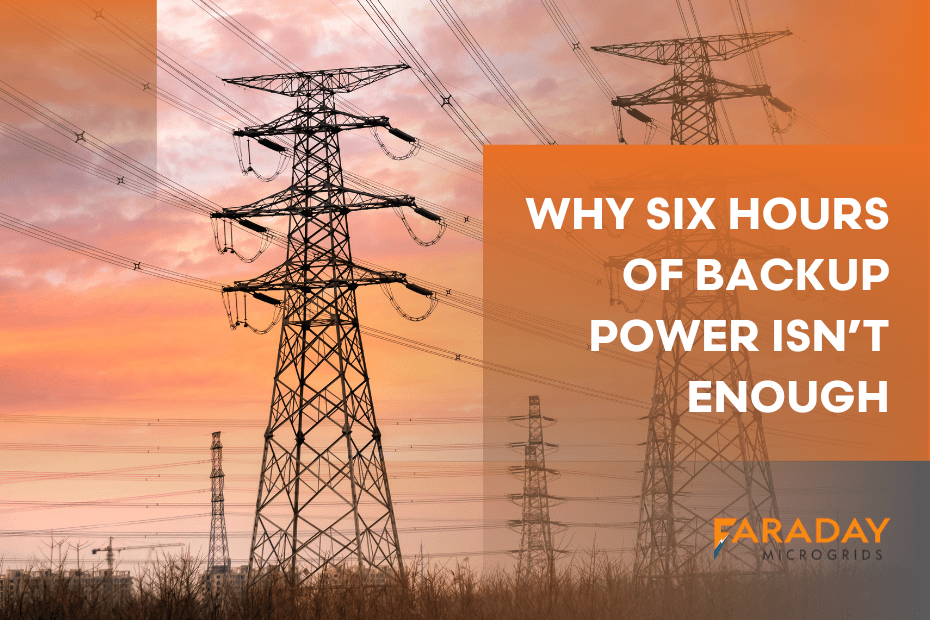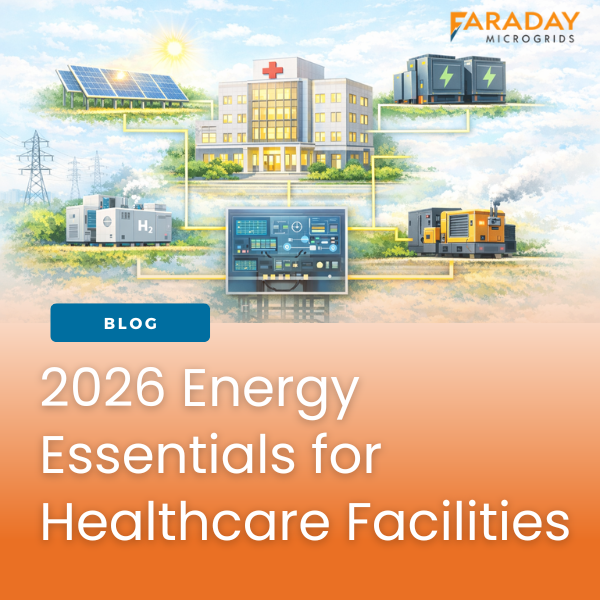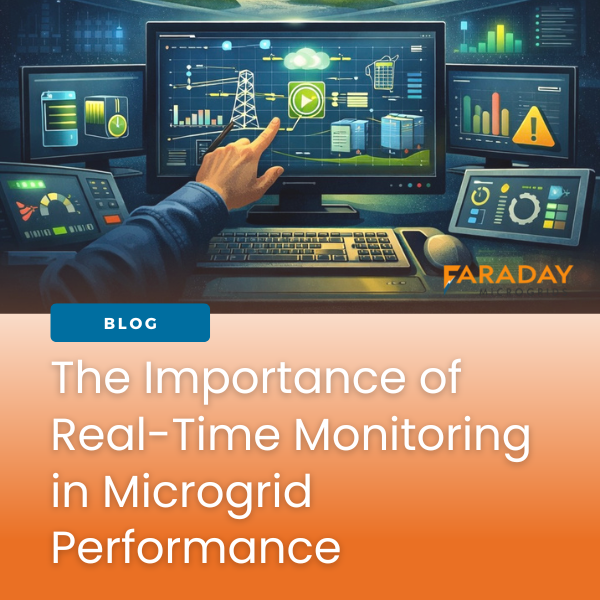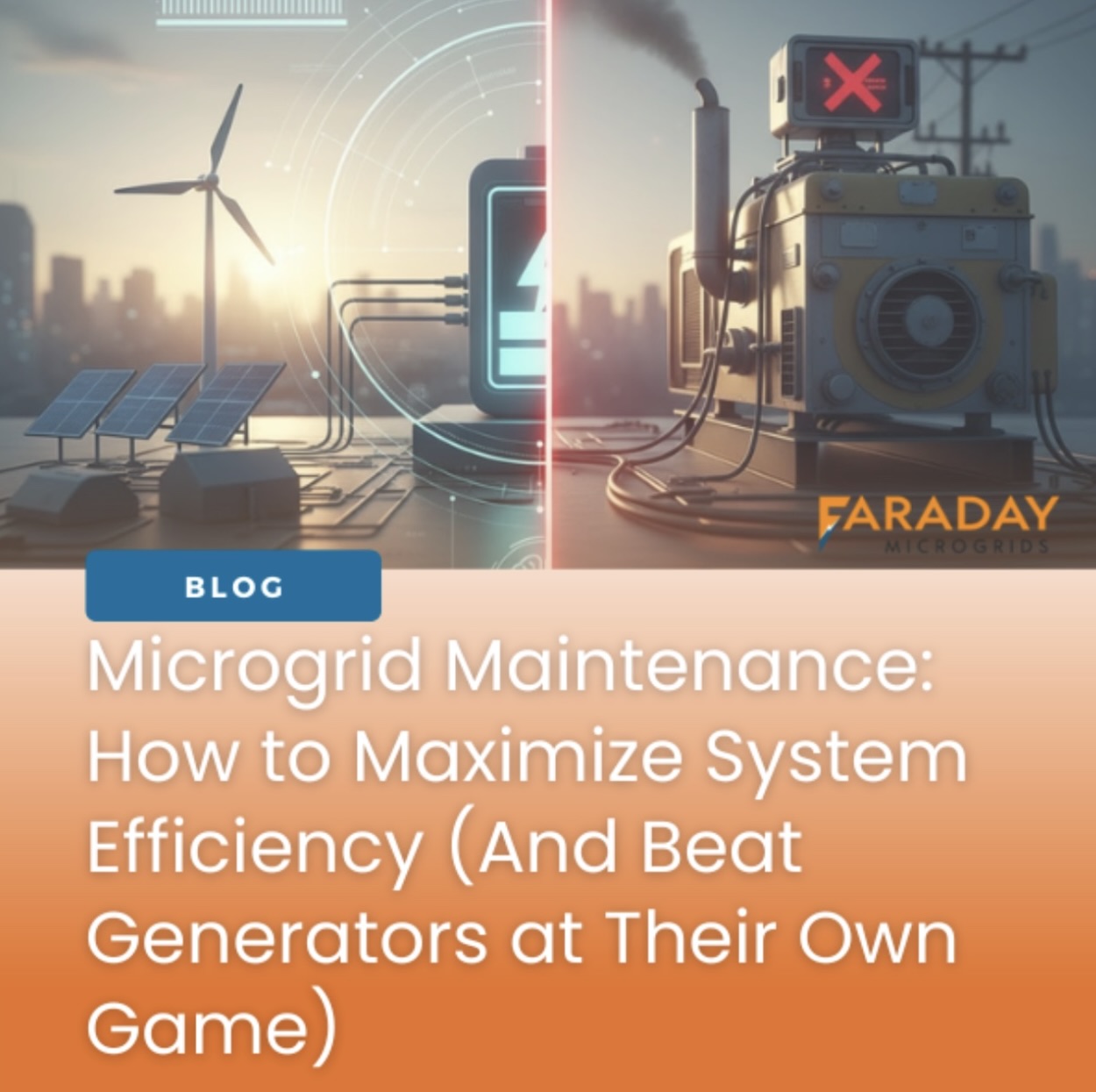California Assembly Bill 2511
The State of California recently passed a bill requiring all skilled nursing facilities to increase the length of time a facility can sustain vital operations following the loss of electrical power.
Previously, the minimum term was 6 hours. The new minimum term? 96 hours.
Section 1 of the bill reads as follows:
“The Legislature finds and declares that it is the public policy of this state to ensure the health and safety of highly vulnerable persons residing in skilled nursing facilities during power outages that may result from a public safety power shutoff, an emergency, a natural disaster, or other cause.
(1) A skilled nursing facility shall have an alternative source of power to protect resident health and safety for no fewer than 96 hours during any type of power outage.
(2) For purposes of this section, “alternative source of power” means a source of electricity that is not received through an electric utility, but is generated or stored onsite, which may include but is not limited to emergency generators using fuel, large capacity batteries, and renewable electrical generation facilities.”
(c) For purposes of this section, “resident health and safety” includes, but is not limited to, maintaining a safe temperature for residents, maintaining availability of life-saving equipment, and maintaining availability of oxygen-generating devices.
(d) Facilities that use a generator as their alternative source of power shall maintain sufficient fuel onsite to maintain generator operation for no less than 96 hours or make arrangements for fuel delivery for an emergency event. If fuel is to be delivered during an emergency event, the facility shall ensure that fuel will be available with no delays.
(e) Facilities that use batteries or a combination of batteries in tandem with a renewable electrical generation facility as their alternative source of power, shall have sufficient storage or generation capacity to maintain operation for no fewer than 96 hours. Facilities shall also make arrangements for delivery of a generator and fuel in the event power is not restored within 96 hours and the generation capacity of the renewable electrical generation facility is unable to provide sufficient power to comply with state requirements for long-term care facilities.”
If you’re feeling unsure about the implications of Bill 1418.22, you’re not alone. Here’s what you need to know about this new bill, how it might affect you, and how to remain in compliance with state and federal regulations.
When does the bill go into effect?
The bill requires a facility to comply with its requirements by January 1, 2024.
How can I remain in compliance?
The bill specifies a variety of ways for facilities to remain compliant, including the use of conventional fuel generators, batteries, batteries in tandem with a source of renewable energy, and renewable energy as a standalone – so long as these power resources meet HCAI and CMS technical standards.
As long as a facility is able to sustain operations for a minimum of 96 hours following an outage or can guarantee the delivery of sufficient fuel to do this, it will be deemed in compliance with Bill 1418.22.
How does this bill affect me?
Bill 1418.22 affects any person or persons who own, operate, or maintain a California-based skilled nursing facility in that it requires the facility to become compliant with the new minimum term of mandatory backup power by January 1, 2024.
In the past, facilities could remain in compliance so long as they could support up to six hours of backup power. However, given California’s vulnerability to both natural and human-caused threats to the energy grid, legislator’s and the governor have determined that it is no longer satisfactory for a skilled nursing facility to operate on merely six hours of backup power.
Bill 1418.22 ensures that all residents and persons residing or cared for in the facility will have continuous access to the resources, services, and equipment necessary for their health and safety through the provision of 96 hours of continuous alternate power support.
Benefits of a microgrid as a backup power source
- It’s clean. Solar energy is the most effective source of clean energy in the world. Capable of being stored and converted with ease, solar power gathered via microgrids is both logistically efficient and environmentally advantageous.
- It’s inexhaustible. Energy from the sun is one resource humans have in complete abundance. And while you don’t need a beautiful, sunny day to successfully capture solar energy. In the state of California, there are an average of 3,348 hours of sunlight per year (of a possible 4,383) with an average of nine hours of daytime sunlight per day. Year over year, it is sunny more than 76% of daylight hours, making solar energy a coveted alternative to more traditional energy sources.
- It requires minimal maintenance. Unlike backup generators, which continually require fuel, the solar panels found on a microgrid are largely self-sustaining once they’ve been installed. With an average lifespan of between 20-25 years plus, many microgrids will continue to perform fully with only inexpensive periodic maintenance.
Faraday Microgrids provides custom, turnkey microgrid solutions that are easy, affordable, and smart.
Learn more about the benefits of microgrid installation and how we can help you achieve compliance at faradaymicrogrids.com.
